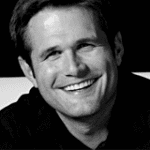Roger Ebert is dead: the film critic who filled the needed role of curmudgeon. He loved movies so much he was willing to hate them when they betrayed either the craft or the viewer.
He allowed epics like Star Wars to be no more than they were, but respected what they were. He was no film snob and so he was a rare trustworthy voice on whether a movie was lowbrow but still fun. With Siskel, Ebert introduce my generation to taking films seriously, without Siskel he continued to write like an avenging angel of film goodness.
Ebert understood that we, the audience, were part of the show. Movies only happen when they are watched, but some movies failed to take that into account and against such carelessness he was ruthlessness in the flesh. He could destroy a film like Mencken destroyed a politician, but like Mencken his values outside of his expertise were often bad.
He was famous, but with the kind of fame that fades fast. New media had already reduced the power of the newspaper critic or the television movie pundit: there will be no “next Ebert.” If he had been born a few decades later, he would have been looking for work, paying work, in his forties.
Just as most of the thousands of films he reviewed are forgettable and nearly forgotten, so his prose and his topic made for sudden fame, but not lasting honor or glory. If he was right about eternity, that it is a blank, and the nature of his life, which he believed ended forever at death, then his choices were not such bad ones.
Yet even in the light of eternity, severe in judgments of human frailty, charity demands we appreciate what Rodger Ebert gave us. He was honest about the movies and made us laugh: he was a guide to shadows in the Shadow Lands — and a sure guide.
He knew the flickering images well and today I would make the best of him, not the worst.
He is gone, an era has passed, and I for one will miss him. He knows, if contrary to his expectations there is something to know, the Truth and I pray for a merciful review of his life as I hope to receive mercy.











